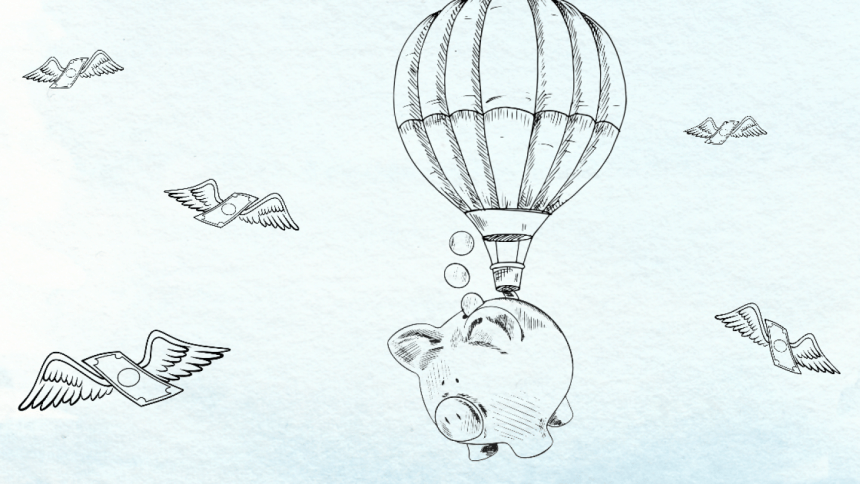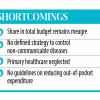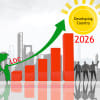Make the national budget relevant again

The number of risks that our economy currently faces because of all the global instabilities is perhaps unmatched since the early days of Bangladesh's independence. Amid this reality, the government is set to present the new budget early next month.
In the last two years, the government had to prepare less ambitious budgets due to the pandemic. But now it has no option but to increase its support for the people, who are suffering both from the after-effects of the pandemic and because of various supply-related shocks due to Russia's invasion of Ukraine.
Simultaneously, debt servicing—particularly after watching what's happening in Sri Lanka—and budgetary deficits are becoming increasing concerns for Bangladesh. In the last fiscal year, Bangladesh's debt-service-to-revenue ratio jumped to 81.2 percent from 56.2 percent in 2019. According to the International Monetary Fund (IMF), "Although the risk of debt distress remains low, the risk from a rising debt-service-to-revenue ratio has increased."
And this is where the concern is particularly acute, because for years, Bangladesh has struggled to improve its tax-GDP ratio. Over the last nine years, our highest tax-GDP ratio was an embarrassingly low nine percent in FY2017-18. In the last fiscal year, that declined to 7.6 percent—the lowest in South Asia and one of the lowest in the world.
"Money is really going out of taxpayers' pockets. But it is not going to the state coffers," says Zahid Hussain, former lead economist of the World Bank's Dhaka office. "The money is going to the pockets of various intermediaries in the system." This great leakage is affecting the whole fiscal management of the country. Then there is the issue of tax evasion, which is suspected to be quite common among the political and business elite.
Without increasing tax revenue, the government has no other alternative to finance its expenditure—without increasing the risks of debt servicing. Already, the Finance Division has warned the government to avoid hard-term loans and discourage import of luxury goods to cope with macroeconomic pressures arising from external shocks. Moreover, it observed that the financial health of commercial banks has weakened due to rising non-performing loans (NPLs), pushing up the costs of letters-of-credit (LC)—putting greater pressure on our forex reserves—and that the government needs to take initiatives to finish megaprojects on time, which would relieve some of that pressure. But these recommendations have been conveyed to the government for years now. Instead of paying heed to them, the government lashed out at anyone who made the suggestions.
Loan payments already account for the fourth biggest head in the overall budgetary expenditure. However, that would not be a problem if loans were judiciously used on financially viable projects which benefited the economy and the people. That must be the government's focus going forward—unlike in the past.
Also, in regard to expenditure, allocations for the education and healthcare sectors have to be increased. Not only that, their capacity to absorb budgetary allocations must also be improved. In the budget for FY2021-22, the education sector received only 2.08 percent of the GDP. In its Education 2030 Framework for Action, Unesco recommends allocating four to six percent of GDP for education. However, at the current rate of resource allocation, the education budget as a share of GDP may only reach up to 2.15 percent in 2025 and 2.26 percent in 2031.
Even in the post-Covid period, Bangladesh is spending around 2.5 percent of its GDP on health, which is the lowest in South Asia. Numerous studies have shown that, because the out-of-pocket expenditure for healthcare services is so high, the majority of people are just one health crisis away from going below the poverty line. In fact, many people have gone below the poverty line because of some form of health emergency.
Understandably, the allocation for subsidy is being revised upwards by 24.1 percent to Tk 66,825 crore in the next budget. The alleged purpose of this is to keep prices low, amid volatility in the international market. But will that purpose really be served?
If we take the power sector for example, the government for years has been paying for far more generation than we need, while making very little improvement in transmission capacity. Therefore, crores of taka from the public fund have been wasted to subsidise the overcapacity in power generation. Will the new increase in subsidy similarly get flushed down the drain?
To pay for the increased allocation in subsidy, the government is set to slash funds for the annual development programme (ADP) by 7.89 percent. According to Dr Selim Raihan, executive director of the South Asian Network on Economic Modeling (Sanem), "Whenever there is a budget cut, it is the ADP that is the main casualty." But development activities should get priority over non-development aspects of the budget.
While that is true, how useful would that be? After all, since FY2008-09, the government has not once been able to implement the budget fully. In its recommendations for the upcoming budget, the Centre for Policy Dialogue (CPD) said, "Over the last decade, the budgetary target setting in Bangladesh has primarily emerged as a numbers game."
But the budget needs to be more than that. As the World Bank explains, "Accurate revenue and expenditure forecasts are a key input to the preparation of a credible budget. In Bangladesh, overly optimistic expenditure allocations are presented with aspirational revenue targets." Which, in short, translates to: the government plays politics with the budget.
It is unclear how long the government can afford to do so, but it is clear that the people no longer can. Neither can they afford the government's poor execution and waste of budgetary allocations. The sooner the government realises that, the faster it can work on making the budget relevant again, and for the right reasons.
Eresh Omar Jamal is assistant editor at The Daily Star. His Twitter handle is: @EreshOmarJamal

 For all latest news, follow The Daily Star's Google News channel.
For all latest news, follow The Daily Star's Google News channel. 








Comments